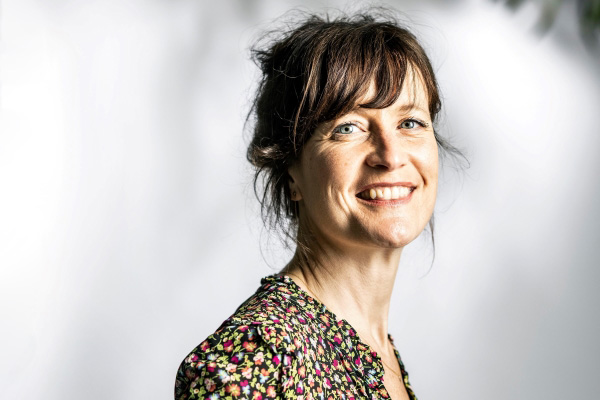Worldwide, the number of people suffering from diabetes is on the rise. It is currently estimated that about one out of eleven people in the world live with the condition, equating to nearly half a billion people who have to keep a close look on their blood sugar levels every day.
The most common technique for diabetes management is currently finger-prick testing, which can be uncomfortable and stressful. It entails pricking your fingertip several times per day with a lancet device, which uses a tiny needle to draw a drop of blood that is then applied to a test strip. This strip is inserted into a blood glucose meter, which shows how much glucose is in your blood at that moment.
1 out of 11 people in the world live with diabetes
Newer systems for continuous glucose monitoring (CGM) have also been created, where a needle sensor is inserted under the skin to measure the glucose levels every few minutes. But these systems (and the adhesive patches used with them) can cause discomfort and complications. They can also lead to stigmatization, as they are usually quite visible on the arm or torso. To add to the negatives, they often still require regular finger pricking to ensure that the system functions efficiently. The drawbacks make many people with diabetes weary of using these types of needle sensors.
Smart solution to monitoring sugar levels
Indigo’s solution is finally doing away with the use of needles and replacing them with something entirely painless: light. The company’s method is a spectroscopic technique, using light to analyze the properties of a material that interacts with it. Indigo’s small device is implanted just below the skin of the belly, where it shines harmless light through the fluids between cells in the tissue. Depending on which colors of the light spectrum are absorbed, the sensor can measure how much glucose is present and transmit that information to a small portable receiver.
“Indigo’s solution is finally doing away with the use of needles and replacing them with something entirely painless: light.” – Danaë Delbeke
“Our device is a small chip on which we’ve assembled a complex optical system,” explained Indigo’s CEO Danaë Delbeke in an interview with Belgian newspaper De Tijd. “This system consists of all kinds of high-tech materials of which the effectiveness has been proven.” This innovative device will transfer the measurement data to an app on any smartphone or connected device, that will display glucose levels, show trends, and send out warnings in real-time. With the app, people’s data can also be efficiently analyzed by medical professionals.
The sensor is made to remain functional for about two years. The aim is not only to measure glucose, but also other important metabolites such as ketones, which is why it’s called a continuous multi-metabolite monitoring system (CMM). Measuring ketones is important because an elevated level of this substance in your blood may point to a very high blood sugar level and can trigger diabetic ketoacidosis, which is a medical emergency.
The Photonics Valley of Ghent
Based in Ghent, Indigo is a spin-off of Ghent University (UGent) and nanotech leader imec. The company benefits from the combination of UGent’s expertise in photonics – the science and technology of light – and imec’s nanoelectronics know-how. This partnership has recently led to the development of a whole array of spin-offs in the domain, giving rise to a so-called ‘Photonics Valley’ in Ghent.
Read this article to learn about imec and UGent spin-off Azalea Vision’s smart contact lens
Danaë Delbeke helped to plant several seeds in this valley – including Indigo – in her time as business development manager at UGent. But in 2016, she decided to focus entirely on Indigo. “By speaking to many people with diabetes, I understood how big their needs are. And the gap between their demands and a solution was enormous,” she told De Tijd. It was the trigger for her to try to solve this severe problem.
The Indigo device is still in development, with the company aiming to bring its solution to the European and US markets by the end of 2023. There is a lot of interest in the approach: the start-up has raised more than 45 million euros since its start six years ago. Investors are led by Belgian venture capital firm Fund+, along with Ackermans & Van Haaren, Thuja Capital, PMV, Capricorn Partners, imec.xpand, Qbic and private investors.


